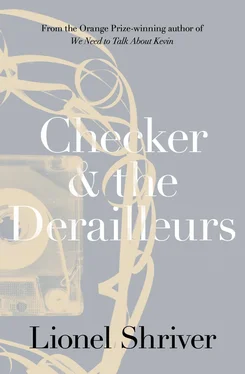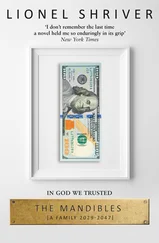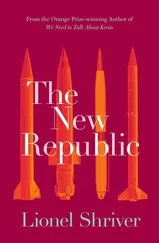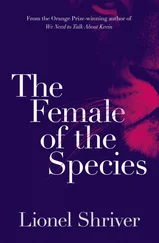The guitarist suggested they do a slow song and let the girl sing. Rachel DeBruin had a sweet, mournful presence that could surely calm the band down, and maybe the crowd, now growing unruly. The band never had her sing too often, since she made audiences pensive; she recalled lost summers and first loves. On good nights she could raise a napkin to the corner of a biker’s eye. Tonight, however, they would settle for quiet.
Yet when she sang “The Last Time I Saw Richard,” its sweet romantic disappointment bittered; the other musicians harmonized in their heads. Welsher , thought Caldwell, the guitarist. His “friend” J.K. had owed him fifty dollars since July. Strumming next to Caldwell, J.K. felt his bass droop; he’d been lugging mail sacks for the post office all week, and his arms were tired. Two of his friends had left for Jamaica earlier in the week, but J.K. couldn’t go, no—as usual. He had a wife and daughter to support. What a hero , he thought sourly. All day long postcards had spilled from his sacks, of palm trees, greased-up girls, with messages like “Water warm, rum cheap.” The keyboardist, Carl Ming, kept forgetting the chords, but helplessly remembering everything else—fifth grade came at him like a submarine torpedo: four boys, a big brass spatula for a paddle, and a fence. Since his childhood was enough of a torment the first time, “Quiet Carl” wasn’t the nostalgic type; memory itself was assault.
Howard glared from the front table. They thought they were so hot, prancing around on stage. All the errands he ran for those guys, their thanks jokes at his expense. Airheads . Howard recited to himself his very high SAT scores. Meanwhile, the Middle Eastern saxophonist glanced disdainfully down at the audience. Self-satisfied Americans. Rich land, good weather, all those cars, completely wasted on 240 million fat sheep .
In the song, a woman sits in a bar getting drunk, mooning over an old boyfriend; the place is about to close, and the waitress wants her to finish her drink. That’s me , thought Rachel. Twenty years from now, that’s me. Same bar, same man. That bastard. Some days I don’t know what I want more, to slit his throat or mine .
Yet Eaton, insofar as he was capable of the emotion, was perfectly happy.
So there you have The Derailleurs—a motley or tropical crew, depending on your mood. The picture of that obscure Queens rock band, tripping over frayed cords fat with electrician’s tape, could appear credibly striking, but you have to look at them right. Otherwise, especially with indigestion or maybe just an indigenously surly disposition, you might notice how Caldwell is overdrawn, like a cartoon—his nose is enormous, his arms are too long, a vein on his temple protrudes. He jitters around the stage in a panic, constantly adjusting amp settings and checking the jacks, in the grip of some terror, but only nineteen—what is there to be afraid of? Rachel, lost in her big maroon sweater half unraveled down the front, is arguably mousy. She always looks at the floor. Rachel is Bowie’s original China Doll, perched on the edge of the stage—when she shatters you won’t want to be around to pick up the pieces. Someday someone will have to take the blame for Rachel DeBruin. J.K.? One more hunky black kid, likes his beer, his rock and roll—a known quantity. Hijack, whose real name is Rahim Abdul, is too pretty for a boy. And in New York you sure get tired of foreigners. Those accents aren’t quaint or exotic anymore after about week 6 here. From then on, it’s just, I need a cabbage, a small one; Excuse—? A cabbage! Like that. Quiet Carl never says a damn thing, and who needs that. As for Howard Williams, their “manager”? Squid. Boat shoes! Oh, he isn’t exactly ugly—Howard has even, regular American features with nice thick brown American hair—but to whatever degree looks are style, Howard is hideous.
However, it would be possible to execute a little turn like flicking the channel over and back again; the picture, black and white a moment before, blushes to color. Suddenly the spotlight on stage shadows Caldwell’s face with the exotic expressions of a Kabuki mask. He has long, elegant fingers. His hair is bright gold. True, he’s frightened, but at nineteen there’s plenty to be afraid of, like the rest of your life. Rachel is no longer mousy, but delicate. If you circled your thumb and middle finger around her wrist, both end joints would overlap. J.K. is big rather than fat, comfortable and unpretentious as an overstuffed armchair. And so what if Rahim is pretty? Beautiful teeth—matched pearls, a two-string smile. Further, sometimes it’s possible to recuperate that delight in foreigners you had when you first came to New York. His r’s roll like water. Quiet Carl has a story, and you like stories. Howard is handsome, and you’re dying to tell him that. You want to take him shopping and buy him some shirts with color and jeans that don’t hike up like that, Hi-Tops instead of boat shoes. But you won’t. And Howard will keep buying the pale plaids and jeans that are big in the waist and short in the leg, and that makes you smile, because people are astonishingly consistent, so carefully themselves. You don’t mind. Why, he’s the only person you know who wears boat shoes.
What if you added Checker Secretti to this picture? Well, if your mood is sour, Checker isn’t very impressive. Few people seem to notice that he isn’t very tall, but you would notice. His brown skin, kinky hair, and blue eyes would disturb you, for you can’t quite tell what race he is, and it’s stressful when people resist normal categories. You might say he’s “cute,” but he’s no head turner. Not even as straight-out good-looking as, say, Eaton Striker. In fact, you would think this specifically: Not as good-looking as Eaton Striker , since, if you were eyeing Checker Secretti with just this narrow annoyance, you would be Eaton Striker.
But if you feel fine? If you understand that people are attractive not just for their strengths but for their shortcomings? Then how would Checker Secretti look?
You might see the shadow of a nose, the flicker of a hand, a rolled-up sleeve of bright red cotton, but you wouldn’t see the man from head to toe, and it wouldn’t occur to you to wonder whether he was a head turner, because, leaning in the frame of the door, you would have to be Checker Secretti himself.
… and when you finally reappear / at the place where you came in / you’ve thrown your love to all the strangers / and caution to the wind—
“Sheckair!” Rahim stopped cold in the middle of “Love over Gold” and unstrapped his sax to bound from the stage. The rest of the band dribbled off; Eaton was the last to stop playing. Running to the doorway, Rahim clapped Checker’s hand and turned him fully around like a square-dance figure, laughed, and planted a big, unembarrassed kiss on each of Checker’s cheeks.
Between three and five, Plato’s usually settled down to a small core of customers; The Derailleurs would put away their instruments and everyone put his feet up. The drinking slowed to a trickle, and even diehard rockers grew philosophical. Not tonight. They all pulled on their coats when Check walked forward, slinking out of the club hastily as if leaving the scene of a crime.
“You just get here?” asked Caldwell, fidgeting with his gig bag.
“Caught some of that last set.”
“Yeah, well.” A strap was caught in the zipper, and Caldwell went about solving the problem intently. “Just screwing around. You weren’t here.”
“We’ve been through this.”
“Well, you can’t expect us to be any good,” Caldwell burst out, “without you.”
Читать дальше












